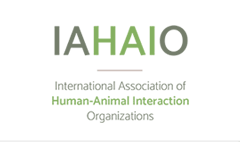Abstract
Intentional harm to nonhuman animals in childhood often correlates with histories of witnessing, experiencing, or perpetrating violence. Without appropriate intervention, children and adolescents who abuse animals following exposure to family violence risk long-term behavioral health challenges. While some treatment models have been specifically designed to reduce the risk of future violence among children displaying this behavior, interventions involving nonhuman animals represent a novel approach and show promise in addressing behavioral challenges associated with this behavior. Framed through the lens of a clinical case study, this article presents the potential benefits of implementing Animal Assisted Play Therapy® to treat symptoms of trauma and attachment challenges when harm to animals has occurred.
Recommended Citation
Wenocur, Katharine and VanFleet, Rise
(2024)
"Animal Assisted Play Therapy® for Childhood Animal Abuse Following Exposure to Family Violence: A Case Example,"
People and Animals: The International Journal of Research and Practice: Vol. 7
:
Iss.
1,
Article 4.
Available at:
https://docs.lib.purdue.edu/paij/vol7/iss1/4


